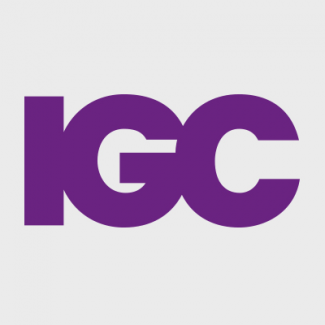IGC annual report to DFID 2013-2014
-
IGCAnnualReport2013-14.pdf
PDF document • 482.02 KB
The International Growth Centre (IGC) has created an innovative demand-led model for linking research and policy, using frontier research to generate new ideas and to support independent policy advice to promote sustainable growth in developing countries. During 2013/14, the IGC has continued to develop this model, bringing together the best minds in academia with key policymakers and stakeholders in its partner countries to address important growth challenges.
In this first year of Phase II, the IGC has influenced policy debates across its 15 country programmes in 14 partner countries through the successful commissioning of research that matches demand in crucial growth policy areas. The research programme has been refocused to four main research themes: state effectiveness, firm capabilities, cities and energy. These themes were identified as areas of high demand from IGC partner countries and of demonstrated IGC comparative advantage in conducting innovative and influential research. In addition, a new system for commissioning research has been introduced, based on a unified open call for proposals. This new global call, replacing the individual country calls and separate research calls in Phase I, enables the research and country programmes to draw on the largest possible pool of researchers. The new commissioning boards include representatives of research and country programmes to ensure that commissioning decisions are fully informed by country and research priorities.
The IGC has continued to deepen its engagement with policymakers and researchers through networking and knowledge-sharing events and an expanded online presence. A combination of international, regional and in-country events in 2013/14 have provided opportunities to share findings of IGC research and to foster interaction and collaboration between IGC researchers and key government stakeholders in its partner countries. In addition, the IGC has continued to influence the public and global debate on growth policy through public lectures, publications and an expanding online presence with the launch of its first regional website, Ideas for Africa (I4A) in December 2013.
This report showcases 36 examples of high impact IGC work across its partner countries and research areas. These examples illustrate how the IGC has continued to succeed in responding to policy demands and in influencing policy in its partner countries by providing independent advice based on high quality research.
The recruitment of key posts in 2013/14 has contributed to increased capacity in the hub and the country teams. Moving further into Phase II, the IGC’s operating model will see further developments aimed at achieving greater impact. A new Monitoring and Evaluation strategy will better inform the IGC of ‘success factors’, allowing the IGC to further improve its ability to achieve policy impact. The revised IGC Communications strategy will enable the IGC to strengthen the links between research and policy and will identify new pathways for influencing global debates on growth policy. Going forward, the IGC will continue to provide world-class research-based policy advice to support the growth process in developing countries and, most importantly, to improve the lives of the poor.


